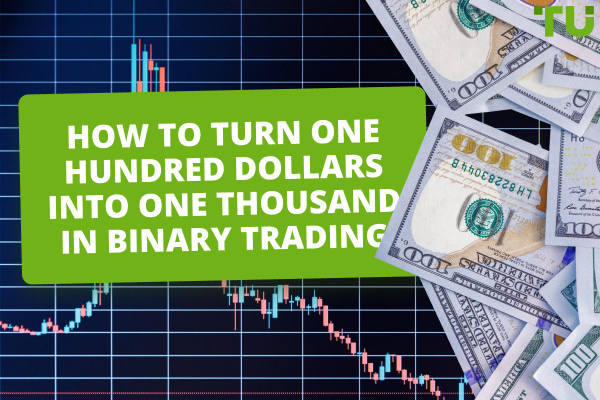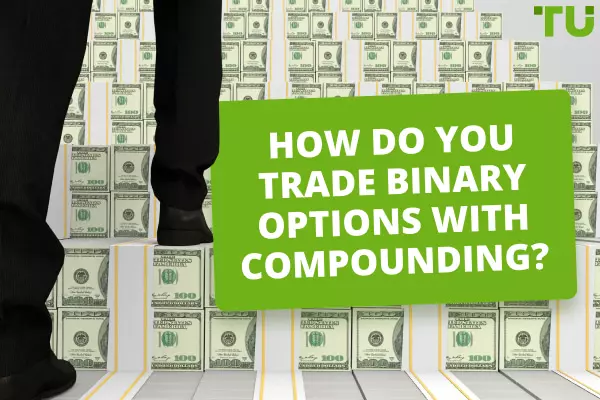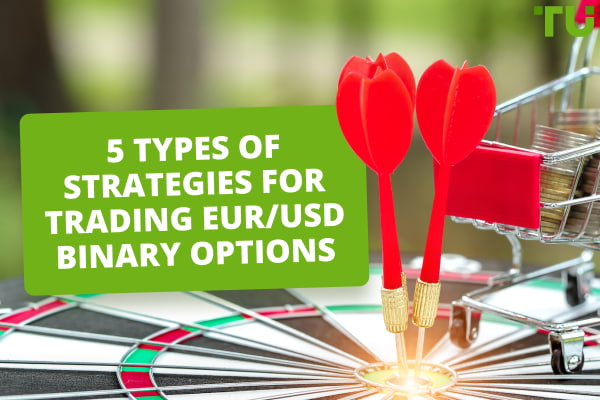What Is The Minimum Amount For Binary Options?
While some brokers may allow you to begin with as little as $5 or $200, others might require a more substantial initial investment, often in the range of $250 to $1,000 or even higher.
The amount of money you need to trade binary options can vary significantly and largely depends on the binary broker you choose. Binary options trading involves predicting the price movement of assets within a specified time frame, and brokers typically offer different minimum deposit requirements to start trading on their platforms.
Start binary options trading right now with Pocket Option!Typical binary broker’s minimum deposits
Traders Union, after a comprehensive review of over 50 binary brokers, has found that the average minimum deposit required for binary trading typically falls within the range of $5 to $250.
Among the leaders in Traders Union's binary rating, we find a variety of minimum deposit requirements. Pocket Options, for instance, requires a minimum deposit of $50, Quotex offers an even lower barrier to entry, with a minimum deposit of just $10, appealing to those looking for a more budget-friendly option. IQ Cent, with a minimum deposit of $20, strikes a balance between affordability and features. On the lower end of the spectrum, Binarium stands out with a minimal $5 deposit requirement.
In contrast, Binarycent and Daxbase, with their $250 minimum deposit requirements, target a different segment of traders who may have more substantial investment resources at their disposal. Your choice among these brokers should align with your specific financial situation and trading objectives.
What is the minimum binary options trade size?
The minimum binary options trade size, also known as the minimum trade amount or investment amount, refers to the smallest amount of money you can invest in a single binary options trade. This value can vary significantly among different binary options brokers and trading platforms. Typically, minimum trade sizes can range from as low as $1 to $25 or more, depending on the broker's policies.
Most brokers from Traders Union binary brokers rating, often offer a minimum binary options trade size as low as $1. This low entry point allows traders to engage in binary options trading with minimal financial risk per trade.
It's important to note that the minimum trade size is separate from the minimum deposit requirement. While the minimum deposit determines how much money you need to fund your trading account, the minimum trade size sets the lower limit for the amount you can invest in each individual binary options trade.
What is a reasonable binary investment?
A reasonable binary investment is an amount of money that aligns with an investor's risk tolerance and financial capacity, ensuring it won't harm their overall financial situation. It's imperative to recognize the inherently high-risk nature of binary options trading, where potential profits are offset by the risk of losing the entire investment in a single trade. Thus, the chosen investment should be modest, derived from disposable income, and viewed as an educational expense, allowing traders to gain experience while safeguarding their financial stability.
Top 3 binary options brokers
Maximizing Your Potential with Bonuses
One of the most common ways for binary options brokers to attract new traders working with minimum deposits is by offering enticing bonus promotions. Since trading with small account balances can make consistent profitability a challenge, bonuses effectively multiply the amount available to trade. This allows traders to potentially achieve better trading results right from the start of their binary options journey.
There are several types of bonuses commonly offered:
Deposit bonus: matches a percentage of your initial deposit, allowing you to trade with more capital. For example, a 100% deposit bonus doubles your deposit amount.
Welcome bonus: awarded for simply opening an account. Amounts vary but are typically smaller than deposit bonuses.
Non-deposit bonus: allows you to trade with virtual funds without an initial deposit. Any profits won can usually be withdrawn, but the bonus amount cannot.
Cashback bonus: received for losing trades, this refunds a percentage of the lost amount, allowing traders to recoup some losses. Cashback rates vary from 5-15% typically.
All bonuses are subject to wagering requirements or turnover that must be met before profits can be withdrawn. This is usually a multiple of the bonus + deposit amount that must be traded before cashing out. Read the terms carefully to understand any expiration dates or limits as well.
FAQs
How much money can you make trading binary options?
The potential earnings in binary options trading vary significantly and depend on factors like your initial investment, the assets you choose, market conditions, and your trading strategy. While it's possible to make substantial profits, it's equally crucial to understand the high-risk nature of binary options, which can lead to significant losses.
Is binary trading easy?
Binary options trading is often marketed as a straightforward way to profit from financial markets, but in reality, it can be challenging. Understanding market trends, asset analysis, and risk management are crucial for success. Beginners may find it initially accessible but should invest time in learning and practice before trading real money.
What is the payout ratio in binary options?
The payout ratio in binary options refers to the percentage profit you receive if your trade is successful and expires in-the-money. It represents the fixed return you earn on top of your initial investment. For example, if you have a payout ratio of 80%, and you invest $100 in a binary option trade that ends successfully, you will receive a profit of $80, in addition to your initial $100 investment. It's important to remember that in binary options trading, if your prediction is incorrect, you lose your entire investment.
Can I turn $10 into $1m in binary options?
Turning $10 into $1 million in binary options is highly improbable due to the inherent risk and unpredictability of financial markets. Binary options trading involves a high chance of losing your entire investment, and attempting such a monumental gain is akin to gambling rather than sound financial strategy.
Glossary for novice traders
-
1
Broker
A broker is a legal entity or individual that performs as an intermediary when making trades in the financial markets. Private investors cannot trade without a broker, since only brokers can execute trades on the exchanges.
-
2
Trading
Trading involves the act of buying and selling financial assets like stocks, currencies, or commodities with the intention of profiting from market price fluctuations. Traders employ various strategies, analysis techniques, and risk management practices to make informed decisions and optimize their chances of success in the financial markets.
-
3
Options trading
Options trading is a financial derivative strategy that involves the buying and selling of options contracts, which give traders the right (but not the obligation) to buy or sell an underlying asset at a specified price, known as the strike price, before or on a predetermined expiration date. There are two main types of options: call options, which allow the holder to buy the underlying asset, and put options, which allow the holder to sell the underlying asset.
-
4
Binary options trading
Binary options trading is a financial trading method where traders speculate on the price movement of various assets, such as stocks, currencies, or commodities, by predicting whether the price will rise or fall within a specified time frame, often as short as a few minutes. Unlike traditional trading, binary options have only two possible outcomes: a fixed payout if the trader's prediction is correct or a loss of the invested amount if the prediction is wrong.
-
5
Investor
An investor is an individual, who invests money in an asset with the expectation that its value would appreciate in the future. The asset can be anything, including a bond, debenture, mutual fund, equity, gold, silver, exchange-traded funds (ETFs), and real-estate property.
Team that worked on the article
Andrey Mastykin is an experienced author, editor, and content strategist who has been with Traders Union since 2020. As an editor, he is meticulous about fact-checking and ensuring the accuracy of all information published on the Traders Union platform. Andrey focuses on educating readers about the potential rewards and risks involved in trading financial markets.
He firmly believes that passive investing is a more suitable strategy for most individuals. Andrey's conservative approach and focus on risk management resonate with many readers, making him a trusted source of financial information.
Dr. BJ Johnson is a PhD in English Language and an editor with over 15 years of experience. He earned his degree in English Language in the U.S and the UK. In 2020, Dr. Johnson joined the Traders Union team. Since then, he has created over 100 exclusive articles and edited over 300 articles of other authors.
Mirjan Hipolito is a journalist and news editor at Traders Union. She is an expert crypto writer with five years of experience in the financial markets. Her specialties are daily market news, price predictions, and Initial Coin Offerings (ICO).












